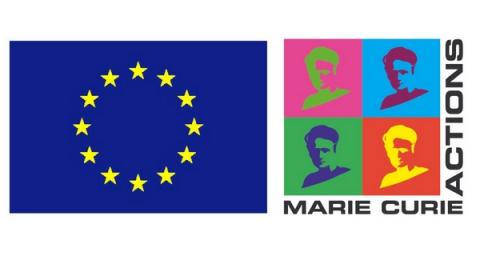MSC Actions MagniFiCor
Project information:
Financing: European Commission, Horizon 2020
Project ID: MSC Actions – Horizon 2020, 101026899 MSCA-IF-2020 — Individual Fellowship
Title: Magnetism for the functionalization of metallic materials surfaces and its effect on corrosion phenomena
Acronym: MagniFiCor
Project ID: MSC Actions – Horizon 2020, 101026899 MSCA-IF-2020 — Individual Fellowship
Title: Magnetism for the functionalization of metallic materials surfaces and its effect on corrosion phenomena
Acronym: MagniFiCor
Abstract:
On the 1st of September 2022 the MagniFiCor (“Magnetism for the functionalization of metallic materials surfaces and its effect on corrosion phenomena” MSC Actions – Horizon 2020, 101026899 MSCA-IF-2020 — Individual Fellowships) has been launched. The research project is dedicated to study magnetism for the functionalization of metallic materials and understanding its effect on corrosion phenomena in harsh environments, such as the fission and fusion industry. The grant was awarded in 2020, but due to travel limitation caused by pandemic situation, it had been postponed. Nevertheless, preparation was ongoing since June 2022, which includes conceptual design of the MagniFiCor experimental set up, decision about the instruments needed and some initial tests of the samples have been carried out, the exploratory experiment helped to find out about potential technical problems and issues to be solved beforehand.
Aleksandra Baron-Wiechec is supported in her MCSA fellowship by The Electrochemistry and Corrosion Lab (EC Lab) team at the NOMATEN which consists of 3 people: in addition to Aleksandra Baron-Wiechec, Muralidhar Chourashiya (senior staff member) and Agata Skotniczuk (junior staff member). The EC Lab is, in terms of organization, under the umbrella of the Functional Materials Research Group.
Dr. Aleksandra Baron-Wiecheć is an experienced and well established scientist working in the field of material science and surface engineering with a robust scientific profile. She obtained her PhD from the Silesian University of Technology in Poland, then she conducted research at the University of Manchester (UK), in France at the Institut des NanoSciences de Paris, and in Portugal at the Instituto Superior Técnico. She has worked many years for the government regulatory body (UK Atomic Energy Authority) and for EUROFusion consortium. Since 2018, she is a professor and a leader of the Baron-Lab (www.baron-lab.com) at Guangdong Technion – Israel Institute of Technology in China.
Aleksandra Baron has made significant contributions into two main fields: the materials – plasma interactions in extreme conditions, and the surface engineering using isotopic tracing methods. Regarding the later topic, she pioneered isotopic tracing of oxygen and hydrogen isotopes for Ion Beam Analysis (IBA) combined with high-resolution electron microscopy to study complex growth process of self-ordering nano-pores in oxide films formed by anodizing. Today her research focuses on functionalization of metals surface, stable isotopes application in materials science, mass spectrometry and corrosion at the nanoscale.
Aleksandra Baron published her research results in over 90 peer reviewed papers. She has been awarded twice the very prestigious European Fellowship Programme: Marie Skłodowska - Curie Actions in 2008 and 2020. She is a member of the EU Alumni initiative of the European Delegation in Beijing.
Files
Marie Curie (367.53 KB)

Copyright NOMATEN 2017-2024






